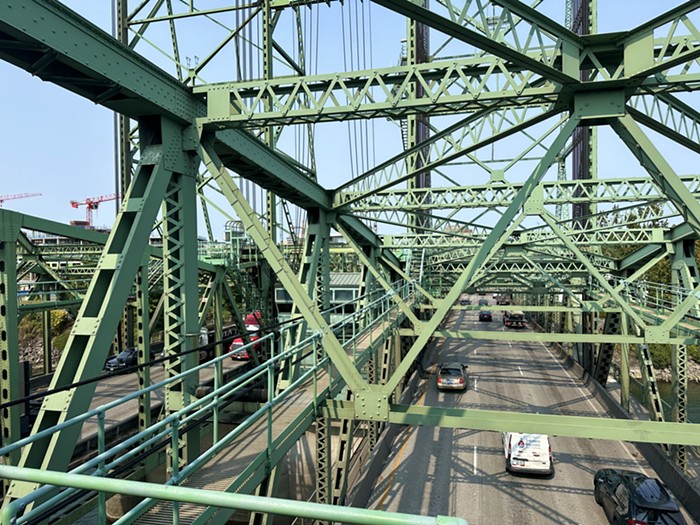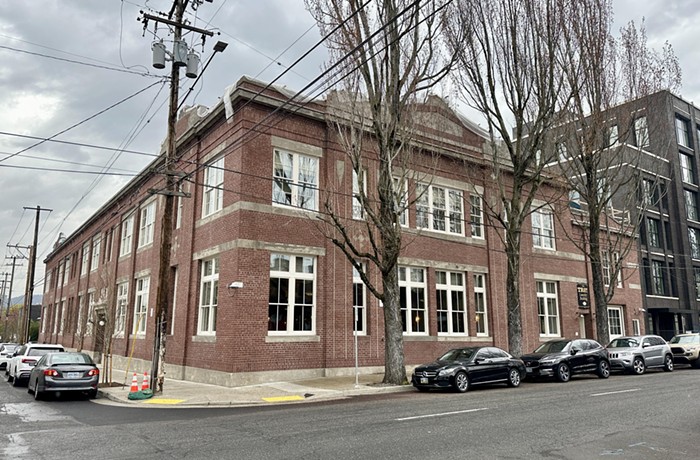Lame duck Metro Council President David Bragdon didn't wave protest signs outside the first meeting of the Columbia River Crossing "independent review panel" yesterday but, boy, did he lay the smackdown inside. It seems like he's going to do everything he can his last few months in office to change the course of the $3 billion megabridge to Vancouver. His testimony articulately sums up the reasons the CRC is shot:

- David Bragdon and Sam Adams at a CRC meeting last year
Successful mega-projects elsewhere, whatever their other merits or demerits, ranging from Boston’s Big Dig to Denver’s international airport, only come to fruition when the coalition in support of them consistently expands — and those coalitions only expand when issues are addressed in a meaningful, inclusive, and problem-solving manner, and a variety of disciplines and creative solutions are brought to bear.He spelled out the problems with the current bridge plan in four bullet points:By contrast, proposed mega-projects tend to stall, as this one has, and fail, when they are imposed from above, are sold simply on the basis of platitudes not based in fact or financial rigor, or are the product of one agency’s or one professional discipline’s toolbox to the exclusion of all the other tools in the transportation toolbox.
After my nearly three years of involvement — again, three years which started with me as a vote in favor of the conditional LPA [Locally Preferred Alternative] — my reluctant conclusion is that the current CRC proposal by the state highway divisions dramatically fails both of those basic tests: it has not been proven to be a cost-effective solution to the many challenges in this corridor, and it has not been planned and developed in an innovative or inclusive manner.
• Concerns that the size and management of the widened freeway bridge would simply send the traffic bottleneck farther south into Portland.
• Lack of "21st century forecasting and modeling techniques" to show how the expanded freeway would create more incentive for single occupancy car trips.
• Interchanges that "fit the context of our neighborhoods (i.e. don't squash Hayden Island)
• And, of course, a finance plan that reflects what Oregonians and Washingtonians will actually agree to pay for the project.
Ouch.


















